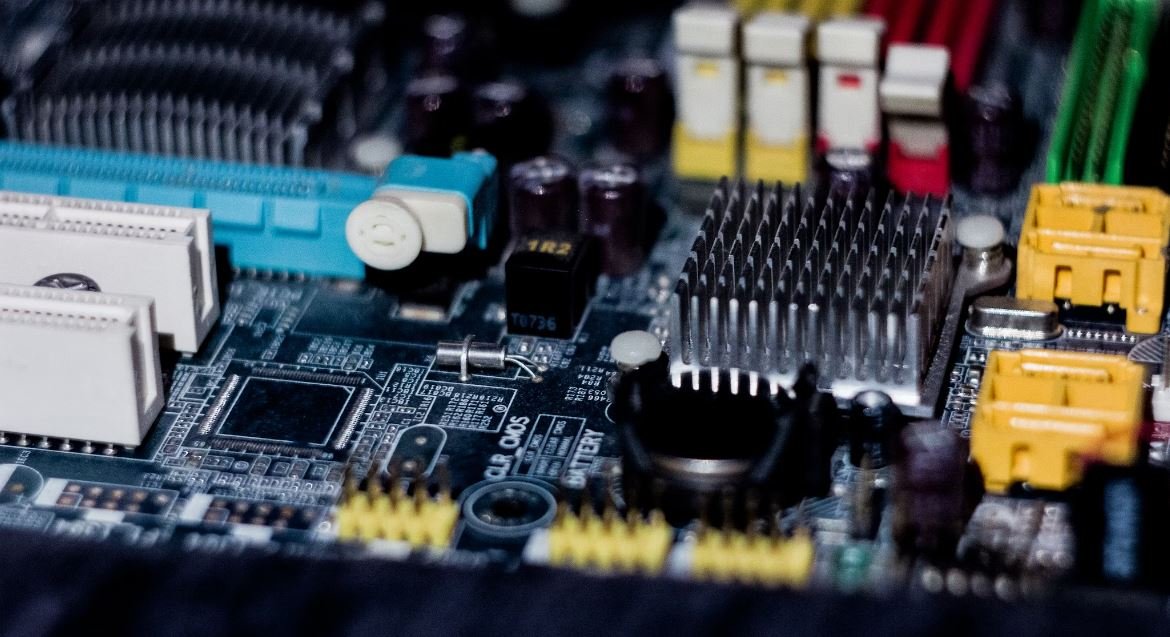Top AI Books
Artificial Intelligence (AI) is a fascinating field that continues to evolve at a rapid pace. To stay up-to-date with the latest trends and advancements, reading books on AI can be immensely helpful. Whether you are a beginner or an expert in the field, here are some top AI books that are highly recommended for gaining a deep understanding of AI concepts and applications.
Key Takeaways
- Explore the top AI books for comprehensive knowledge.
- Discover books suitable for beginners and experts alike.
- Stay updated with the latest trends and advancements in AI.
1. “AI: A Modern Approach” by Stuart Russell and Peter Norvig
This book is a comprehensive guide to AI, covering various topics such as problem-solving, knowledge representation, and machine learning. The authors provide real-world examples and exercises to reinforce learning. *Understanding AI fundamentals is crucial for building advanced AI systems.*
2. “Superintelligence: Paths, Dangers, Strategies” by Nick Bostrom
In this thought-provoking book, Nick Bostrom explores the potential risks and benefits associated with artificial general intelligence (AGI). He delves into the impact of AGI on society and discusses ways to ensure its safe development. *The book raises important ethical considerations surrounding AI.*
3. “Deep Learning” by Ian Goodfellow, Yoshua Bengio, and Aaron Courville
Deep learning is a rapidly evolving area of AI that has revolutionized various domains. This book provides a comprehensive introduction to deep learning, covering topics such as neural networks, optimization algorithms, and generative models. *Discover the fundamental principles behind deep learning techniques.*
Tables
| Book Title | Author(s) | Publication Year |
|---|---|---|
| AI: A Modern Approach | Stuart Russell, Peter Norvig | 1995 |
| Superintelligence: Paths, Dangers, Strategies | Nick Bostrom | 2014 |
| Deep Learning | Ian Goodfellow, Yoshua Bengio, Aaron Courville | 2016 |
4. “The AI Advantage” by Thomas H. Davenport
Thomas H. Davenport explores how organizations can leverage AI to gain a competitive advantage. The book provides insights on implementing AI in business processes and highlights successful AI use cases. *Unlock the potential of AI for your organization.*
5. “Human Compatible” by Stuart Russell
Stuart Russell addresses the concerns of aligning AI with human values and ensuring the development of AI systems that are beneficial to humanity. The book explores the technical and ethical challenges while proposing potential solutions. *The book emphasizes the need for responsible AI development.*
Table 2
| Category | Book Title | Author(s) |
|---|---|---|
| Fundamentals | AI: A Modern Approach | Stuart Russell, Peter Norvig |
| Ethics | Superintelligence: Paths, Dangers, Strategies | Nick Bostrom |
| Deep Learning | Deep Learning | Ian Goodfellow, Yoshua Bengio, Aaron Courville |
6. “Thinking, Fast and Slow” by Daniel Kahneman
Although not specific to AI, Daniel Kahneman‘s book provides valuable insights into human decision-making and cognitive biases. Understanding human cognition is essential for developing AI systems that can effectively interact with users. *Explore the fascinating workings of the human mind.*
7. “Robotics: Modelling, Planning, and Control” by Bruno Siciliano and Lorenzo Sciavicco
This book focuses on the field of robotic systems and provides a comprehensive overview of robot modeling, control, and planning techniques. It covers topics such as kinematics, dynamics, and motion planning. *Delve into the exciting field of robotics and its intersection with AI.*
Table 3
| Book Title | Publication Year |
|---|---|
| AI: A Modern Approach | 1995 |
| Superintelligence: Paths, Dangers, Strategies | 2014 |
| Deep Learning | 2016 |
| The AI Advantage | 2018 |
| Human Compatible | 2019 |
| Thinking, Fast and Slow | 2011 |
| Robotics: Modelling, Planning, and Control | 2009 |
By reading these top AI books, you can expand your knowledge and gain insights into the exciting world of AI. Whether you are interested in AI fundamentals, deep learning, ethics, or robotics, these books offer valuable perspectives and expertise. Start exploring these titles and enhance your understanding of AI today!

Common Misconceptions
Artificial Intelligence
There are several common misconceptions surrounding the topic of Artificial Intelligence (AI). Here are three of them:
- AI will replace humans in all jobs
- AI is only beneficial for large corporations
- AI will become superintelligent and take over the world
Machine Learning
Machine Learning is a subfield of AI that deals with the development of algorithms and models that enable computers to learn from and make predictions or decisions without being explicitly programmed. However, there are misconceptions associated with this field:
- Machine Learning can solve any problem
- Machine Learning is only for data scientists and experts
- Machine Learning algorithms always provide flawless predictions
Robotics
Robotics is another area closely related to AI, involving the design, development, and operation of robots. However, certain misconceptions prevail in this field:
- All robots are autonomous and can perform human-like tasks
- Robots will take over human jobs completely
- Robots possess human-like emotions and consciousness
Natural Language Processing
Natural Language Processing (NLP) focuses on the interaction between computers and human language. Despite its advancements, people often have misconceptions about NLP:
- NLP can perfectly comprehend and interpret all languages
- NLP systems are completely error-free
- NLP technology is primarily used for nefarious purposes
Ethical Implications
AI’s increasing presence in our daily lives raises ethical concerns. However, there are certain misconceptions surrounding these implications:
- All AI technology is biased and discriminatory
- AI is devoid of moral responsibility
- AI will inevitably surpass human intelligence

Top AI Books
Artificial intelligence (AI) is a rapidly growing field that has captivated the interest of many individuals seeking to understand and harness its potential. This article highlights ten remarkable books that cover various aspects of AI, from its history and theoretical concepts to practical applications and ethical considerations.
1. “Artificial Intelligence: A Modern Approach” by Stuart Russell and Peter Norvig
Considered a standard text in the field, this book provides an extensive introduction to AI, covering topics such as problem-solving, knowledge representation, and learning algorithms.
2. “Superintelligence: Paths, Dangers, Strategies” by Nick Bostrom
In this thought-provoking book, Bostrom explores the potential impact of future superintelligent machines on humanity and the risks associated with their development.
3. “Deep Learning” by Ian Goodfellow, Yoshua Bengio, and Aaron Courville
Presenting a comprehensive overview of deep learning algorithms, this book delves into neural networks, convolutional networks, recurrent networks, and generative models.
4. “The Master Algorithm: How the Quest for the Ultimate Learning Machine Will Remake Our World” by Pedro Domingos
Domingos explores the concept of a universal learning algorithm and its potential to revolutionize fields such as finance, healthcare, and more.
5. “Machine Learning: A Probabilistic Perspective” by Kevin P. Murphy
This book introduces probabilistic graphical models and covers various machine learning algorithms, providing practical insights into their application.
6. “Artificial Intelligence: Foundations of Computational Agents” by David L. Poole and Alan K. Mackworth
Delving into computational approaches to AI, this book focuses on intelligent agents, logic, planning, and decision-making within an AI context.
7. “Human Compatible: Artificial Intelligence and the Problem of Control” by Stuart Russell
Russell addresses the challenge of aligning AI systems with human values, exploring ways to ensure that AI remains beneficial and compatible with our goals.
8. “Robotics: Modelling, Planning, and Control” by Bruno Siciliano and Lorenzo Sciavicco
This book provides an in-depth understanding of robotic systems, covering kinematics, dynamics, motion planning, control, and sensing.
9. “Artificial Intelligence: Structures and Strategies for Complex Problem Solving” by George F. Luger
Luger’s book offers an introduction to AI problem-solving techniques, including search algorithms, constraint satisfaction, and reasoning under uncertainty.
10. “Ethics of Artificial Intelligence and Robotics” edited by Vincent C. Müller
Addressing ethical considerations surrounding AI and robotics, this collection of essays brings together perspectives from various experts in the field.
With these diverse and insightful books, readers can obtain a comprehensive understanding of AI’s foundations, its potential impact on society, and the ethical considerations that arise in its development and application. Whether you are a seasoned AI professional or just beginning your journey, these books offer a wealth of knowledge to explore and inspire.
Conclusion
The field of artificial intelligence continues to advance rapidly, and these top AI books provide invaluable resources for individuals seeking to delve into this fascinating subject. From fundamental principles to cutting-edge applications and ethical concerns, the books cover a wide range of topics, ensuring there is something for everyone interested in AI. Whether you are a researcher, practitioner, or simply an AI enthusiast, these books are sure to enrich your understanding and exploration of this transformative field.
Frequently Asked Questions
1. What are some of the top AI books?
Some of the top AI books include “Artificial Intelligence: A Modern Approach” by Stuart Russell and Peter Norvig, “Deep Learning” by Ian Goodfellow, Yoshua Bengio, and Aaron Courville, and “Superintelligence” by Nick Bostrom.
2. What topics do these AI books cover?
These AI books cover a wide range of topics such as machine learning, neural networks, natural language processing, computer vision, and the ethical implications of AI.
3. Are these books suitable for beginners?
Yes, some of these AI books are suitable for beginners. For example, “Artificial Intelligence: A Modern Approach” provides a comprehensive introduction to the principles and techniques of AI that is suitable for both undergraduate and graduate students.
4. Which AI book is recommended for those interested in deep learning?
If you are interested specifically in deep learning, “Deep Learning” by Ian Goodfellow, Yoshua Bengio, and Aaron Courville is highly recommended. This book covers the fundamental concepts and algorithms of deep learning and is widely regarded as a valuable resource in the field.
5. Is “Superintelligence” focused on the future and impact of AI?
Yes, “Superintelligence” by Nick Bostrom focuses on the future and potential impact of artificial general intelligence (AGI). The book explores the implications of AGI and the challenges humanity may face in ensuring its safe development.
6. Can these AI books be used as textbooks for university courses?
Yes, many of these AI books are commonly used as textbooks for university courses in artificial intelligence. Professors often recommend “Artificial Intelligence: A Modern Approach” as a comprehensive textbook for introductory AI courses.
7. Do these AI books provide practical examples and exercises?
Yes, some of these AI books provide practical examples and exercises to reinforce the concepts discussed. “Deep Learning,” for instance, includes various coding exercises and examples that allow readers to apply their knowledge in practice.
8. Are there any AI books focused specifically on ethical considerations?
Yes, several AI books address the ethical considerations surrounding AI. One notable example is “Weapons of Math Destruction” by Cathy O’Neil, which explores algorithms and their potential for social bias and discrimination.
9. Are these AI books up-to-date with the latest advancements in the field?
The authors of these AI books make an effort to incorporate the latest advancements in the field. However, it is important to note that the field of AI is rapidly evolving, and new breakthroughs may occur after the publication of these books.
10. Can these AI books be recommended for self-study purposes?
Absolutely! These AI books are highly recommended for self-study purposes. Whether you are a beginner or an experienced practitioner, they provide valuable insights and knowledge in the field of artificial intelligence.




